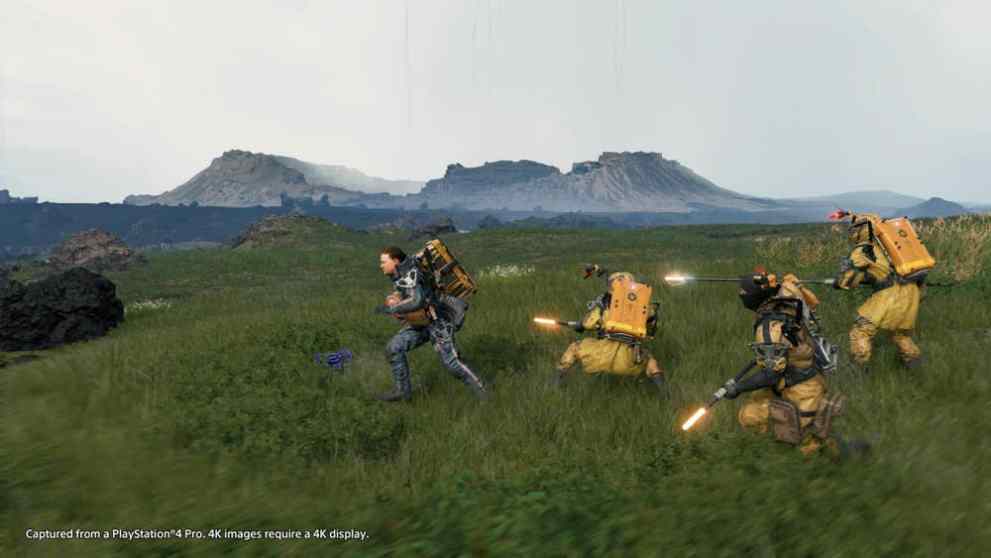In Death Stranding, players will experience a scene several times over which delivery persons know all too well.
Nearing the end of a grueling delivery, players will be tired. They’ll have survived a run-in with BTs, an accident that left their motorcycle in pieces, and, despite the best efforts of gravity, only went careening down a mountainside and damaged the cargo around the packages they were entrusted with once or twice.
They’ll drag themselves into an outpost, unload the packages onto a conveyer belt, and then stand there while someone who can’t even bother to see them in person evaluate their performance, projecting a hologram from the warmth and safety of their bunkers.
Sweat will form on the player’s brow.
It’ll be fine, they’ll think. I got here as fast as possible. I couldn’t control the weather that slowed me down, or the woman with the useless umbrella walking into the road. I even tidied up the package before tending to my mangled limbs after falling down that mountain.
Alas, none of that matters to the client. With a snarky remark, they’ll rate the player with a B or a C based on Bridge’s cold rating metrics. They don’t care about the struggles the player went through; they only care about whether their CDs arrived with the janky cases un-scuffed, or that their figurines can still be shown off in all of their useless glory.
Bloodied, bruised and crestfallen, the player will take their paltry reward of likes, diminished because of their “poor” performance. And yet, just as they’re about to leave, they’ll be pinged with new delivery opportunities from the same person who just scorned them, asking if they can deliver yet more packages “since you’re headed in that direction anyway.”
It’s frustrating, to say the least. After barely acknowledging the struggles they’ve gone through, this hologram-y jerk wants them to do EVEN MORE work for them, even after having their pay docked due to a callous disregard for their efforts.

Players wouldn’t be blamed for wanting to tell those hologram-y jerks to shove their packages in their preferred orifices and take a crack at crossing the post-apocalyptic terrain themselves, and then see whether they’re in the mood to crack some jokes about “getting lost along the way.”
And yet, maybe this is the point the game’s director, Hideo Kojima, was going for.
Always keen on placing meta-textual commentary into his games, Kojima has tackled everything from the unsung sacrifices of military men and women to the pervasiveness of memes and the internet in cultures.
Though they may have come with a few caveats for the sake of gameplay – namely the giant robots and sword-fighting presidents – he’s handles it with a surprising amount of tact, grace and sympathy for the subject matter, aiming to show those playing the game what they may not have noticed about the subject matter before.
Which brings us back to Death Stranding. As players are fuming over the cold arrogance of a customer, it’s likely to dawn on them that maybe, just maybe, this is how actual delivery people feel.
Maybe they, too, were left feeling defeated and depressed when their pay was docked despite their best efforts to deliver an Uber Eats order on time. Maybe they, too, had avoided hazard after hazard, placing their safety on the back-burner because it was their job to do so for their Amazon overlords.
And maybe, just maybe, the player was in the role of the customer once upon a time, not taking any of that into consideration, because all they cared about was whether or not they got their package.
It might not happen for every Death Stranding player. Heck, most might get through the whole game without ever giving a second thought to how the deliveries they’re making line up with those made by live humans in real life.
But for those who do notice it, Death Stranding provides the chance to step into those delivery person’s shoes, and see just how hard it can be.
After that, maybe they’ll treat them with just a bit more respect. After all, who can say just how much they went through to get people the packages that mean so much to them?
